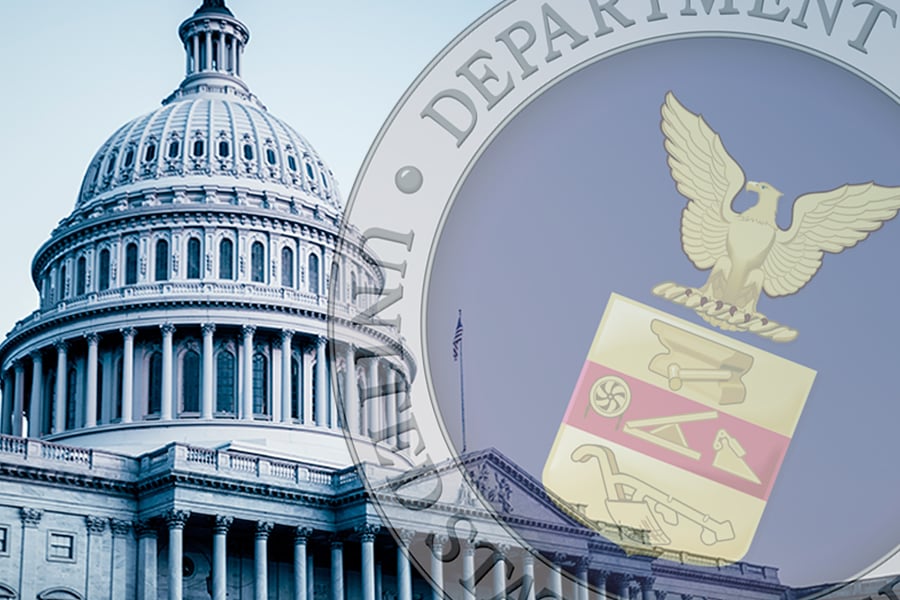

Two former Department of Labor officials – a Democrat and a Republican – said the agency typically grants hearings on pending regulations – and such a request has come from a lawmaker regarding its recent investment advice proposal.
In a letter to the DOL last week, Sen. Patty Murray, D-Wash. and ranking member of the Senate Health Education Labor and Pensions Committee, asked the agency to hold a hearing on a proposal to reform advice standards for retirement accounts.
The measure would replace the Obama administration fiduciary rule that was vacated by a federal appeals court in 2018. It also would align with the Securities and Exchange Commission’s recently enacted Regulation Best Interest, which sets new advice requirements for brokers.
The complexity of the DOL rule and its interaction with Reg BI merit a public hearing, Murray wrote. “These rules are too important to take shortcuts.”
A DOL spokesman confirmed that the agency received Murray’s letter and is reviewing it.
Murray’s call for a hearing follows letters from lawmakers and investor advocates asking for an extension of the comment period on the measure from 30 days to 90 days.
The agency typically holds hearings if they’re requested, especially from members of Congress, said Phyllis Borzi, head of the Employee Benefits Security Administration during the Obama administration and architect of its now-defunct fiduciary rule.
“We were inundated with requests from the industry,” Borzi said. “We accommodated every single one, no matter how repetitive. It will be interesting to see whether they grant an extension of the comment period or allow a hearing. If they don’t do either one of those things – or both – it would be unprecedented in the history of EBSA.”
Brad Campbell, who served as EBSA head in the George W. Bush administration, said DOL is not obligated to hold a hearing on an exemption proposal if it thinks written materials are sufficient.
He said Murray’s request "does not appear ... to conform" to regulatory request requirements but that others likely will ask for a hearing and get one.
“Historically, DOL has granted hearings on class exemptions,” said Campbell, a partner at Faegre Drinker Biddle & Reath. “I think they’re likely to do a hearing, and it’s not likely to cause a significant delay.”
Any slowdown in the rulemaking process could threaten DOL proposals on investment advice and the use of socially responsible investing in retirement accounts if Democrats win the White House in November.
“It seems evident to me they’re trying to finalize [the fiduciary proposal] and the ESG rule very quickly,” said Josh Lichtenstein, a partner at the law firm Ropes & Gray.
The DOL investment advice proposal would provide exemptions to allow investment fiduciaries to receive compensation, such as commissions, 12b-1 fees and revenue sharing, that would otherwise be prohibited as long as they act in the best interests of plan participants.
The fact that the proposal centers on exemptions makes it easier for a new administration to modify it, Lichtenstein said. Changes can be made through frequently asked questions rather than a new rulemaking process.
“Those FAQs could make the exemption more or less onerous to comply with,” he said. Prohibited transaction exemptions are “more discretionary than regulations in that regard.”
The DOL investment advice rule was published in the Federal Register on July 7. Public comments will be due around Aug. 6.

Relationships are key to our business but advisors are often slow to engage in specific activities designed to foster them.

Whichever path you go down, act now while you're still in control.

Pro-bitcoin professionals, however, say the cryptocurrency has ushered in change.

“LPL has evolved significantly over the last decade and still wants to scale up,” says one industry executive.

Survey findings from the Nationwide Retirement Institute offers pearls of planning wisdom from 60- to 65-year-olds, as well as insights into concerns.
Streamline your outreach with Aidentified's AI-driven solutions
This season’s market volatility: Positioning for rate relief, income growth and the AI rebound
